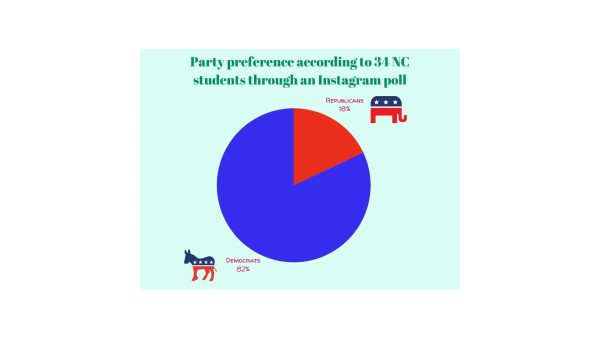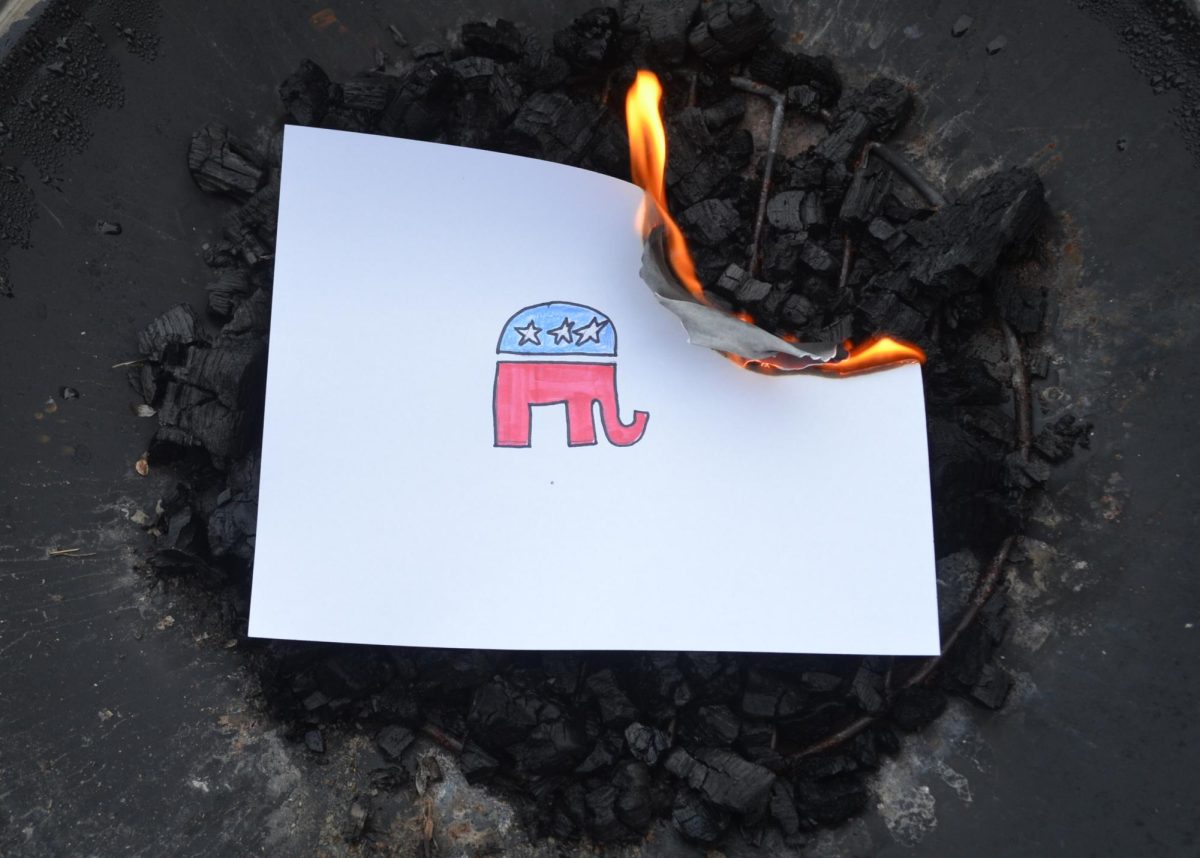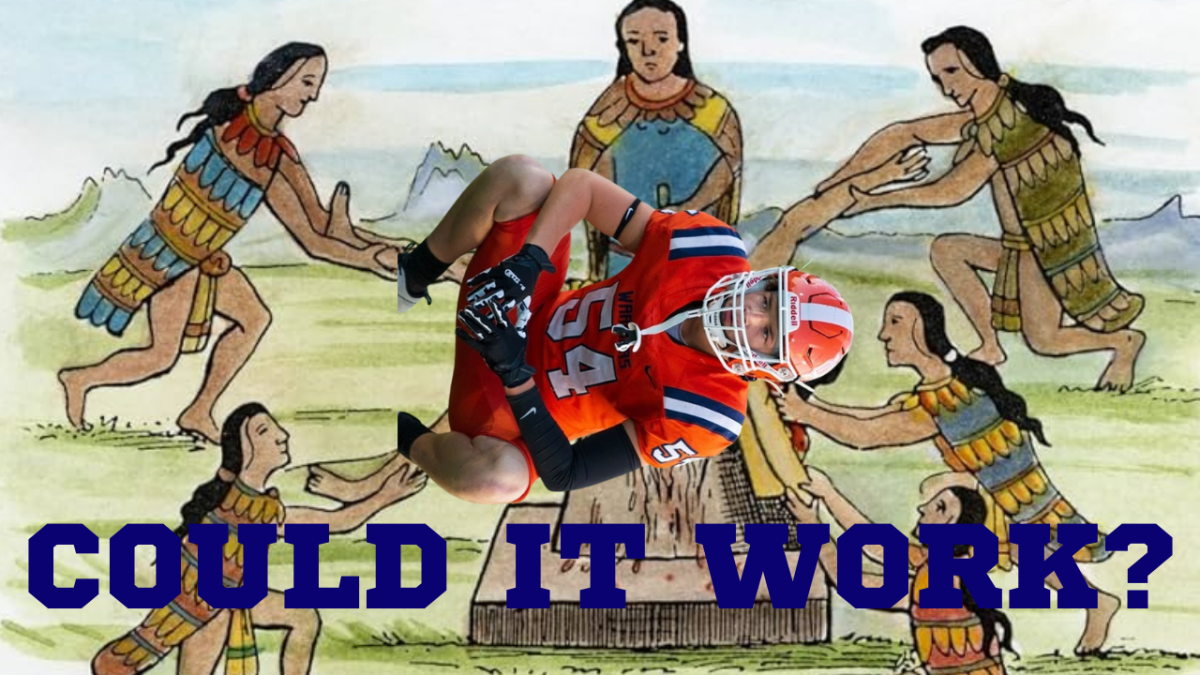The Republican Party, also known as the Grand Old Party (GOP), has existed in the American political landscape since 1854, and the two-party system dates back to shortly after the nation’s founding. Throughout its existence, the party has flipped from the liberal-leaning American party— the party which Abraham Lincoln campaigned under— to increasingly conservative. Recently, however, certain party segments have abandoned their historical moderation when selecting candidates and policies in favor of contributing to the growing polarity between them and the Democratic party. Tensions rise in reaction to the January 6 insurrection and growing debates over the constitutionality of former president and Republican frontrunner Donald Trump’s holding office again. The party no longer accurately reflects the will of its people, but rather, influences it unduly. Certain groups desire to replace the party entirely with a comparatively moderate party.
Supporters prefer the party for its conservative fiscal and social policies, noting perceived low taxes, restrictive abortion policies and national pride, but in reality, the party only holds these stances performatively and has influenced the public opinion to accept more extreme beliefs. Although politicians debate their opinions on these topics, certain scholars wonder how the public would perceive the importance of these political topics if not for media over and under coverage, including consumer-driven outlets such as social media. Although this factor has existed as long as politics, the media must act as gatekeepers to a degree; feelings of increased press influence on the public bring a wave of discontentment toward the established parties from certain moderate voters. Likely, this public discontentment toward the media comes from three things: the Fairness Doctrine’s ending in 1987, the increased power of average people to influence others through social media and the strong feelings of love and hate toward former president Trump.
The GOP acts as one of the two major parties that dominate elections in America today. The two-party system developed due to the disagreements between Federalists and Anti-federalists during the drafting of the US Constitution. The two parties that maintain the majority of political power have changed and switched but consistently fought to outnumber one another and push away third parties from the American political boxing ring. This political structure leaves significant amounts of power in the hands of limited people as third parties experience disadvantages in appearing on the ballot, receiving funding and gaining attention from voters who worry about wasting their vote on an extremely disadvantaged candidate and creating a spoiler effect. This effect leads conservatives who may disagree with actions recently taken by the Republican party but dislike Democrats to vote in favor of a party that fails to truly represent them.
“What we have in the United States is a single member districting system… a system based on plurality, which means that the most votes win, it does not mean majority wins. You don’t have to get 50% plus one in order to win the seat… you just have to have the most votes. And so that means that if you have more parties running for the same seat… someone can win with a minority of the votes. By voting for a third-party candidate, you’ve also taken votes away from other options with whom you might not fully agree. Still, you might have commonalities, and so often what happens is when you get a third-party candidate running or you get a splinter party that breaks off, what occurs is it siphons votes away from its original party. It makes it more likely that the other party in question consolidates power” AP Comparative Government and Politics teacher Carolyn Galloway said.
Young people lose interest in the Republican party as time progresses. This dislike toward the party not only arises from the tendency of younger generations to hold liberal ideas but also from the lack of choice and overall extreme decisions made by certain Republican groups.

Recent decisions and statements made by Republican leaders also tend to conflict with the ideals that hold considerable importance in America’s democracy. Between banning books, extreme abortion bans, the failure to peacefully transition presidential power and outright statements in favor of a dictatorship, groups of Americans— notably those who do not support Trump— begin to feel not just dissatisfied but uncomfortable with electing certain Republicans to office.
Recently in Texas, the state supreme court decided to force film director Kate Cox to carry a non-viable pregnancy to term. Although she left the state to receive the procedure, if she had not done so, she would have given birth to a baby only for the child to die a few days later or suffer a traumatic miscarriage, causing immense emotional distress, putting her health at risk and putting her future fertility at risk. Unfortunately, this risk continues to affect millions of women in the Republican-controlled US.
Additionally, Republican-controlled school systems in recent times began banning books not just for young children, but for middle and high schoolers under accusations of “pornography” among other serious and understandably restricted topics. However, the majority of these books do not contain these topics and rather contain LGBTQ+ and people of color (POC) characters exploring their identities in ways deemed appropriate in books with heterosexual white protagonists or opinion and nonfiction writings on LGBTQ+ and POC issues. Certain books banned in red states and school systems in America include “And Tango Makes Three,” “How to Be an Antiracist,” “We Are The Ants” and decidedly egregiously, The Merriam-Webster Dictionary. Republicans aim to restrict the access to information and expression inherent to a functional democracy for their own gain.
The failure of Trump to peacefully pass on presidential power— a time-honored American political tradition— sparks additional outrage as he begins again to campaign for the presidency in 2024. The 14th Amendment of the US Constitution states that no one who engaged in or incited an insurrection may hold office. Although the interpretation of this statement in regards to the guilt of Trump in inciting the January 6 insurrection varies from court to court and state to state, groups on both sides of the political spectrum feel wary of the politician. However, his supporters vocalize their stance energetically, creating tension among conservatives.
“Their [Republicans] views worry me because they are putting so many people in danger as well as taking away countless people’s rights. [They do this] by taking away proper healthcare for a large amount of citizens, specifically trans people and pregnant people. As well as putting people in danger for having limited regulations on firearms,” sophomore Margaret Hollister said.
The time has come for the people of America to bid farewell to the now-split Republican party and cast away the problems it has caused since the 1980s. The country’s welfare calls for a return to moderation on all sides of politics necessary. Lawmakers should make a systematic change that betters the ability of third parties to win elections and give voters enhanced choices.











